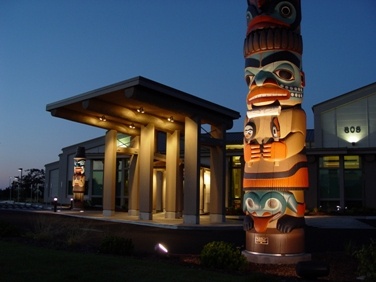The six Native American tribes of the North Olympic Peninsula will share almost $45 million in a larger court settlement with the Obama administration.
Attorneys representing more than 700 tribes announced last week that a federal judge in Albuquerque, N.M., approved the agreement, a $940 million settlement of a national class-action lawsuit.
The lawsuit had sought reimbursement of tribal costs that were underfunded by the federal government under the Indian Self-Determination and Education Assistance Act between 1994 and 2013. The act is designed to compensate tribes for local services, such as education and law enforcement, that the federal government otherwise would provide.
Court documents said that in 1994, Congress began capping total annual appropriations for ISDEAA payments at levels that did not provide enough funding for the tribes’ costs and needs.
When the Ramah Navajo Tribe filed its class action suit, the government argued that these appropriation caps limited the tribes’ rights to pursue damages for the underpayments.
In 2012, the Supreme Court rejected this argument and held the government liable for the underpayments.
The current settlement was negotiated in the wake of that decision and covers the 20 years when the caps were in effect, 1994 through 2013.
According to the settlement’s dedicated website, www.rncsettlement.com, “the settlement funds can be spent by a tribe or tribal organization in the same manner as any other unrestricted tribal funds.”
Jamestown S’Klallam Tribe looks to ‘rainy day’ fund
Ron Allen, chairman of the Jamestown S’Klallam Tribe, was at the National Congress of American Indians conference when the settlement announcement was made and acknowledged tremendous excitement about the news.
Allen said the Jamestown S’Klallam probably will put a significant part of its $4,354,825 portion into a rainy day fund to help it with the ebb and flow of federal funding as well as the tribe’s commercial payroll.
While the tribe still has to look at priorities, he said that several capital projects probably will be in its spending plan, including a court and storage facility, a field office for the county sheriff and the extension of a parking lot.
The Quinault Indian Nation is slated to receive the largest local payment — $22,810,544 — under the terms of the agreement. In a news release, treasurer Larry Ralston said that the nation has a number of “big-ticket expenses” that have to take priority, including the planned relocation of the tribe’s Taholah village, high school and multi-purpose building.
Under the terms of the settlement, the Quileute Tribe will receive $5,751,626. Tribal vice chairman Justin Jaime said he has not heard anything yet about how or when the tribe will receive its portion of the settlement.
According to court documents, the Hoh Tribe will receive $1,635,021 under the terms of the settlement. Tribal chairman Maria Lopez said that the tribal council has not yet had a chance to discuss what it will do with its portion of the settlement.
The Lower Elwha Klallam Tribe is slated to receive $2,524,294 under the terms of the settlement. Tribal chairman Frances Charles said the tribe had not discussed what it would do with its portion of the settlement as the announcement had come out just days before.
Under the settlement, the Makah Nation will receive $7,708,496. Tribal representatives could not be reached for comment.
Mark Swanson is assistant managing editor with the Olympic Peninsula News Group, which is composed of Sound Publishing newspapers Peninsula Daily News, Sequim Gazette and Forks Forum. He can be reached at 360-452-2345, ext. 55450, or mswanson@peninsuladailynews.com.



